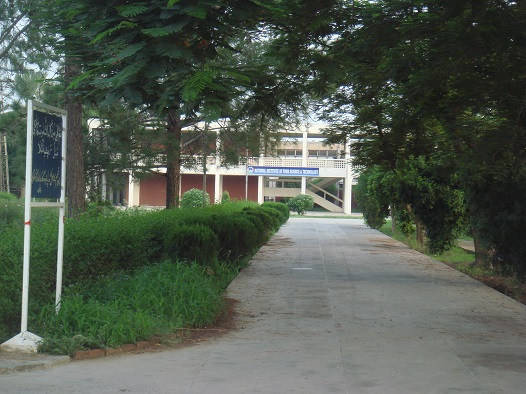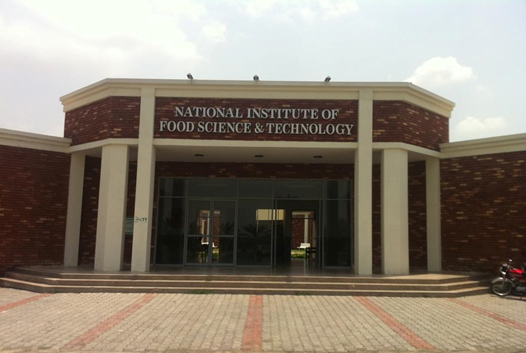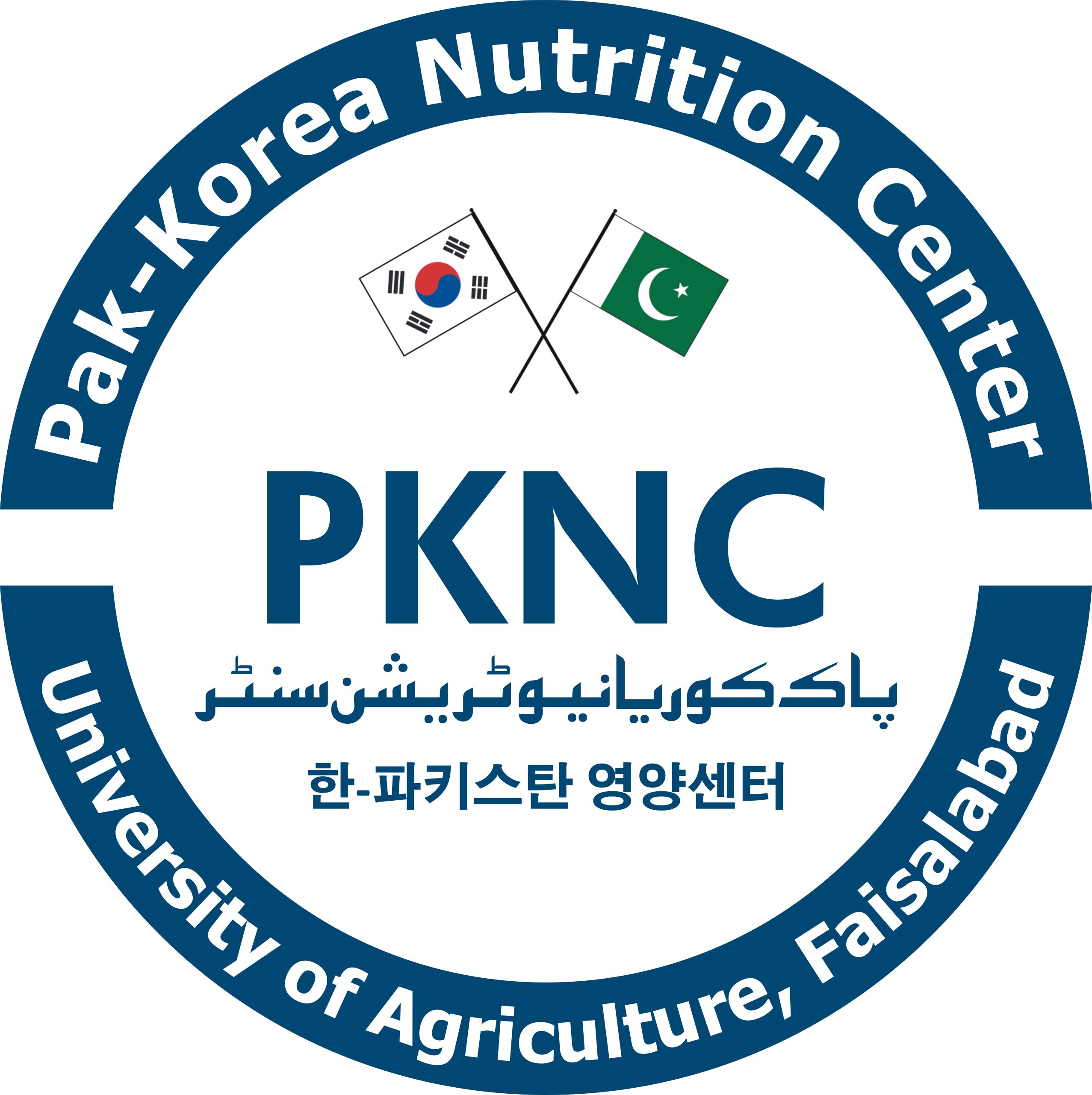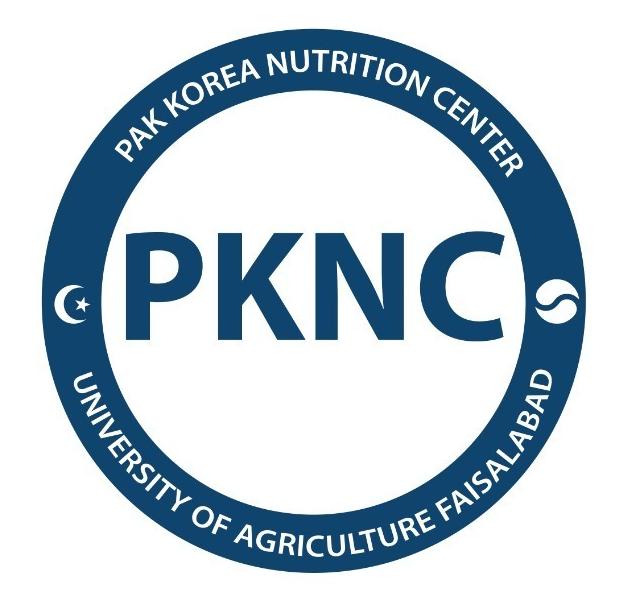We're your team in difficult times
Few Words About Us
National Institute of Food Science and Technology
The National Institute of Food Science and Technology (NIFSAT) was established as Food Technology Section in the then Punjab Agricultural College and Research Institute Lyallpur in 1959-60 which was given the status of Department in 1962. The Department of Food Technology became an administrating part of the Faculty of Agricultural Engineering and Technology at the inception of West Pakistan Agricultural University, Lyallpur in 1961.

Mr. Clyde W. Eddy was the first Head of Department. Mr. Muhammad Bakhsh Bhatti, Dr. Sultan Ahmed Tremazi, Dr. Abdul Latif Rasoolpuri, Mr. Riaz-ur-Rehman, Dr. Muhammad Shafiq Chaudhry, Dr. Haji Muhammad Chaudhry, Dr. Ali Asghar, Syed Aulad Hussain Shah, Dr. Amjad Ali, Dr. Javaid Aziz Awan and Dr. Faqir Muhammad Anjum have served as Heads/Chairmen of the Department of Food Technology during different periods.
The scientific and technological advancements demanded the need to strengthen and upgrade the Department which could bolster the faculty on advanced and more technical grounds. Thus realizing the importance of the discipline in Pakistan, the Department was upgraded to Institute of Food Science and Technology in May 2003 which has further been elevated to National Institute of Food Science & Technology (NIFSAT) in June 2007. Prof. Dr. Faqir Muhammad Anjum was appointed as the founding Director General of NIFSAT. Today, NIFSAT at UAF is a pioneer and the only Food Science and Technology Institute in the country. NIFSAT comprises of six sections and one center namely Nutrition & Food Safety, Grain Science & Technology, Dairy & Meat Technology, Fruits & Vegetables Technology, Oil & Sugar Technology, Food Microbiology & Biotechnology and Food Technology Transfer Centre (FTTC). The FTTC has been established with the help of Agrocampus Rennes, France. The Institute has also established Extrusion Centre with the help of Texas A&M University, Texas, USA and Functional and Nutraceuticals Food Research Section with the cooperation of University of Massachusetts, Amherst, MA, USA. In 2014, Faculty of Food, Nutrition & Home Sciences was established and NIFSAT become the part of this faculty along with Institute of Home Sciences. Prof. Dr. Masood Sadiq Butt was appointed as the founding Dean of the Faculty of Food, Nutrition & Home Sciences.
The main thrust of NIFSAT is the application of Food Science and Technology in handling, processing and preservation of food to cope with the challenges of the rapidly growing food industry in the 21st Century. There has been significant increase in the establishment of food industry during the last two decades and consequently the demand for Food Technology graduates has increased tremendously at national level and in the Gulf countries. The students of Food Science and Technology are sent to different research institutes and food industries for getting industrial training to boost up their practical knowledge.

Presently, NIFSAT has twenty four dedicated and hardworking faculty members, who hold PhD and MSc degrees and have experience of working in the foreign. Beside regular faculty, three subject experts are also working in the Institute. The Institute is actively engaged in research on different aspects of food science & technology and human nutrition including, preservation, value addition, food microbiology, safety, nutraceuticals and functional foods. The contribution and dedication of the staff towards research is reflected through a high number of research articles in foreign and local journals. The dedications of the faculty members have also been recognized by various national organizations, since a number of them have won prestigious awards.
The National Institute of Food Science and Technology is improving academic and research training facilities with significant increase in number and quality of professional manpower. This will help to address national and international issues pertaining to all aspects of food. These will ultimately contribute to provide safe, nutritious and wholesome food to the masses. The laboratories of NIFSAT are well equipped with modern equipments including an automatic complete milk analyzer, milk centrifuge machine, flame photometer, HPLC, GC-MS, LC-MS, supercritical fluid extractor, electrophoresis apparatus, atomic absorption spectrophotometer, FTIR, complete microbial analysis apparatus, refractometers, viscometer, fermentor and single screw extruder.
The Institute is offering ten-degree programs leading to Ph.D. Food Technology, Ph.D. Human Nutrition & Dietetics, M.Sc. (Hons.) Food Science & Technology, M.Sc. (Hons.) Dairy Technology, M.Sc. (Hons.) Food Safety & Quality Management, M.Sc. (Hons.) Food Service Management, M.Sc. (Hons.) Human Nutrition & Dietetics, B.Sc. (Hons.) Food Science & Technology, B.Sc. (Hons.) Human Nutrition & Dietetics and B.Sc. Food Science & Nutrition (for Army Officers only). The Institute has also started PGD in Food Safety & Controls with the active support of European Union (EU) funded Trade-Related Technical Assistance (TRTA II) Program and implemented by United Nations Industrial Development Organization (UNIDO) which aims at strengthening the capacity of Pakistan to participate in international trade.
In future, the Institute intends to start specialization leading to M.Sc. (Hons.) Clinical Nutrition, M.Sc. (Hons.) Community Nutrition and various diplomas. NIFSAT has strong interaction with public and private sector institutions/organizations both at national and international levels. NIFSAT has also signed various MoUs with national and international organization/universities to strengthen the disciplines of Food Technology and Human Nutrition in the country.

